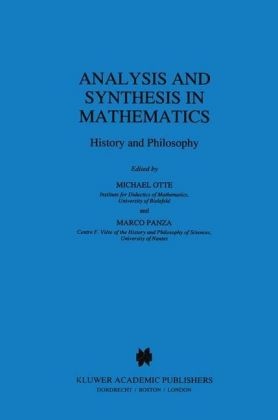Read more
The book discusses the main interpretations of the classical distinction between analysis and synthesis with respect to mathematics. In the first part, this is discussed from a historical point of view, by considering different examples from the history of mathematics. In the second part, the question is considered from a philosophical point of view, and some new interpretations are proposed. Finally, in the third part, one of the editors discusses some common aspects of the different interpretations.
List of contents
Introduction. I: History. 1. The Analytical Method in Descartes' Géométrie; G. Israel. 2. Arcanum artis inveniendi: Leibniz and Analysis; E. Pasini. 3. The Background to and Early Emergence of Euler's Analysis; C. Fraser. 4. Jacob Bernoulli on Analysis, Synthesis, and the Law of Large Numbers; E.D. Sylla. 5. Mathematical Analysis and Analytical Science; C. Alvarez Jimenez. 6. The Analysis of the Synthesis of the Analysis ... Two Moments of a Chiasmus: Viète and Fourier; J. Dhombres. 7. Styles of Argumentation in Late 19th Century; M. Epple. II: Philosophy. 8. From backward Reduction to Configurational Analysis; P. Mäenpää. 9. Analysis, Hermeneutics, Mathematics; J.-M. Salanskis. 10. Science within Reason: Is There a Crisis of the Modern Sciences? R. Tieszen. 11. Mathematics as an Activity and the Analytic-Synthetic Distinction; M. Otte, M. Panza. 12. Mathematical Acts of Reasoning as Synthetic a priori; M. Panza. 13. Analysis and Synthesis in Mathematics from the Perspective of Charles S. Peirce's Philosophy; M. Otte. III: History and Philosophy. 14. Classical Sources for the Concepts of Analysis and Synthesis; M. Panza. Bibliography. Index of Names.
Report
`... is to be recommended to anyone interested in the history and philosophy of mathematics... historians of modern mathematics and even historians of modern science in general will greatly enjoy some of the excellent articles in its historial section.' ISIS, 91:1 (2000)

